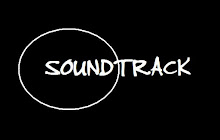You say the title of this post a lot when you direct a show - which I've been doing a lot of lately. It's pretty fun, though a little overwhelming. It requires a tremendous amount of concentration and the ability to hear selectively. You also have to communicate with a team of about six people. Some of the people at Rogers TV make it look easy, but trust me, it's not. I now have a new found respect for directors.
I've been doing quite a bit of writing on Episodes 4 and 5 but their progress isn't coming along nearly as fast as 1 through 3's. I feel like I have something to explain there. I didn't just sit down one day and write the script for an idea I had. It came from a tremendous amount of scribbles and notes. The first three episodes exist in pencil and paper form dating back to April of 2008. Episode 6 is rather fleshed out as well, but these two bridging episodes were always pretty vague. It's taken me a lot of time to try and formulate something that would be a substantial contribution but also allows for me to connect the first three episodes to the finale. The finale is what conceived the idea of Soundtrack and everything before that is just the path. Episode 5 has its direction, but it doesn't have the substance yet to be anything but a bridge right now. It needs work. Needless to say, there now exists a large pile of paper notes that detail the progression of Episode 5.
An idea I've been struggling with lately is the concept of freedom. What is true freedom? Are we really free to do whatever we want? Though it wasn't my deliberate intention to do so, I feel like this theme is very present in Soundtrack. Riley and Cain both struggle with the notion to be free. Riley eventually has to deal with the fallout of her adventure with Derek in her personal life. Cain, though a powerful man, wasn't free to do whatever he wanted and now has to deal with the consequences of his new found self-liberation. Does freedom always come with a cost? Hunter S. Thompson said that without the freedom to commit suicide at any time, he would always feel trapped. He later committed suicide in his study with his family in the next room.
Danielle Parsons/Lidless represents the other side to this argument. Through clairvoyance, she yields to determinism and makes no attempts to stop things from happening - only turning them to her advantage. Following determinism, Parsons has found herself within reach of becoming Prime Minister, while Rhett, walking the free path, is slipping into the underworld of his city.
To be honest, I think it was great to find this unintentional theme in the subtext of the show. In episodes 4, 5 and 6, the characters are going to have to face the decisions they have made so far. I'm hoping that it will feel like an honest transition when some of these characters resolve to change the way they're living.
Anyway, a friend of mine is leaving for the West coast tonight so we're having a goodbye party for her. I hope you all have great weekends and don't let the bad weather get you down.
Dustin
Subscribe to:
Post Comments (Atom)

No comments:
Post a Comment